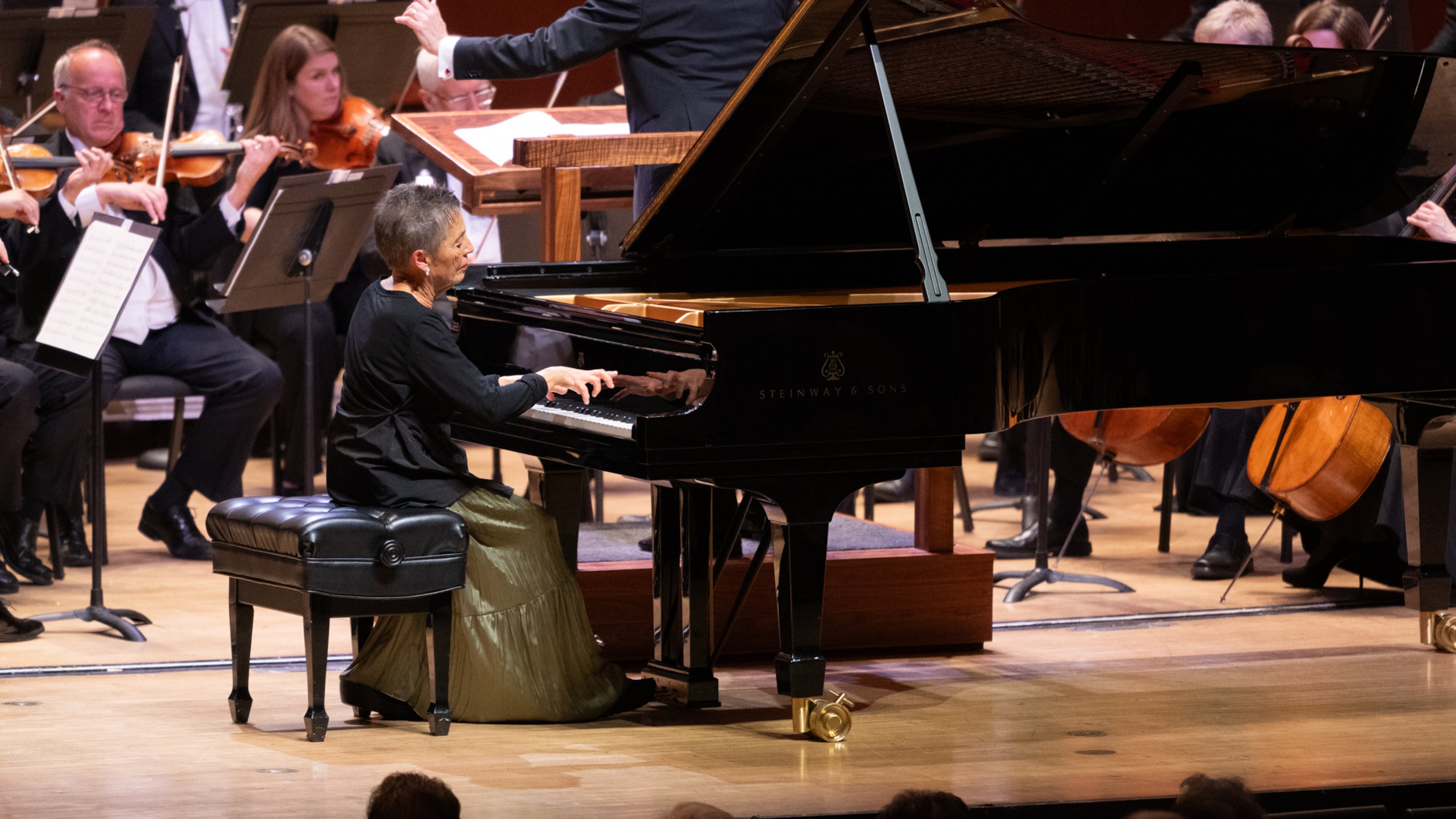ASO ends German Romantics festival on a high note

Atlanta audiences will get their fill of Beethoven next season when Music Director Nathalie Stutzmann and the Atlanta Symphony Orchestra take on eight of the composer’s symphonies, the triple concerto and, in her final concert of the season, the “Missa Solemnis.” But that’s so 2025.
Renowned pianist and educator Maria João Pires, who has been playing professionally since she was a toddler, has seemingly performed everywhere — except here. So when the ASO got the chance to program such the renowned 79-year-old pianist playing Beethoven, they understandably jumped at the chance. Even if the particular Beethoven concerto, No. 4 in G major, was last heard from the Symphony Hall stage little more than a year ago, when guest conductor Kazem Abdullah led the Israeli pianist Tom Borrow.
Thursday at Symphony Hall, Stutzmann and the ASO bookended Pires’ performance with “The Hebrides Overture” by Mendelssohn and, after intermission, Schumann’s fourth symphony. It’s all part of the same German Romantics festival that brought Renee Fleming to Atlanta last week for an evening of Strauss.
Pires has a well-deserved reputation as a master interpreter of Beethoven. She’s also a viral phenomenon thanks to a 1998 documentary posted on YouTube that tracks her horror at learning, after the conductor’s downbeat during a dress rehearsal, that she prepared the wrong Mozart concerto.
On Thursday with the ASO, the Beethoven concerto began with solo Pires relaying the main theme, a delicate opening chord giving way to a sunny recitation of the rhythmic phrase. From that moment on, Pires performed with a captivating beauty and a highly attuned sense of shaping and shading melodic lines. Phrases ended in tender wisps, like a final, peaceful breath; others stood tall as forceful but controlled declarations. Movements contained cadenzas of cascading notes, showy solo passages that sounded not indulgent but vital to the composition; even piano trills that could sound excessive seemed, in her hands, appropriate and necessary.
In the second movement, Pires contrasted strong, stentorian orchestral passages with contemplative, quiet piano responses. This delicious push and pull, a tension put to paper in the early 1800s, crackled with intensity Thursday night. Stutzmann has been fiddling with the orchestral seating arrangements; for Pires’ visit, a handful of strings sat on risers. It’s hard to say if this contributed to the lush, gorgeous string sound heard throughout the Beethoven, but it’s clear the musicians are taking Stutzmann’s musical outlook to heart. The ensemble proved a supportive accompanist, and the musicians enthusiastically followed Stutzmann’s direction, shining throughout.
At times, Schumann’s fourth symphony sounded balanced on a razor’s edge, a brilliant performance thrillingly in danger of falling apart. Schumann’s “one-movement symphony” is really four distinct movements played without pause, and Stutzmann and the ASO made it into a work that gradually builds in intensity, heating up to a boil slowly before ending in a joyous blur of 16th notes and thundering chords. It is now a true joy to hear the ASO horn section, and the Schumann gave the section musicians opportunities to showcase gorgeous ensemble playing.
Pires’ divine performance ends the ASO’s German Romantics festival, which has seen Stutzmann lead the orchestra in works that play a vital part in her vision for the ASO. On the whole, the orchestra has responded incredibly well, and it’s encouraging to hear how quickly the orchestra and Stutzmann have become of one mind.
CONCERT REVIEW
Atlanta Symphony Orchestra
Additional performance 8 p.m. April 20. $31-$121. Symphony Hall, 1280 Peachtree St. NE, Atlanta. 404-733-5000, atlantasymphony.org.


